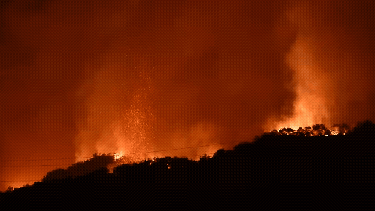Environment

Research
Climate change is turning global wildfires into monsters
The second edition of an annual global assessment of wildfires warns that climate change has made burned areas 30 times larger in some regions

Research
Ammonia is sticky, so measuring it is tricky
Ammonia released from sewage treatment plants can impact our health and the environment, but it’s taken an innovative way of measuring it to understand the scale of the problem

Analysis
Why climate change adaptation is a key piece of our climate risk puzzle
Climate adaptation can make the difference between the potential impacts outlined in Australia’s first National Climate Risk Assessment and a more hopeful reality

Analysis
Australia’s new target to cut climate pollution is undermined by fossil fuel expansion
For Australia’s national climate plans to be meaningful, they need to include an orderly phase-out of its fossil fuel exports

Research
Thermal drones are helping to monitor some of Australia’s most elusive wildlife
Thermal camera-equipped drones are revolutionising wildlife surveys in Victoria’s native forests

Analysis
Earth has an Outer Space Treaty, but is it time for an Orbital Activity Treaty?
Space programs are launching more orbital objects every year – and some must come down. It’s time for legal regulation to manage our increasingly perilous Near Space zone and beyond

Research
Saving the giants of the Australian forest
Mountain ash forests are predicted to lose a quarter of their trees by 2080, releasing over 100 million tonnes of stored carbon into the atmosphere. But there is a way to limit further loss

Under the Microscope
From backyard garden to global agriculture
Agricultural scientist Dr Xia (Emma) Liang has travelled to Laos to work with local farmers and researchers on reducing nitrogen pollution from crops

Research
Why we all need a 'climate safe room’ (and how to create one)
Our changing climate means homes and workspaces also need to change. By retrofitting buildings, we can create healthier, more sustainable urban spaces
